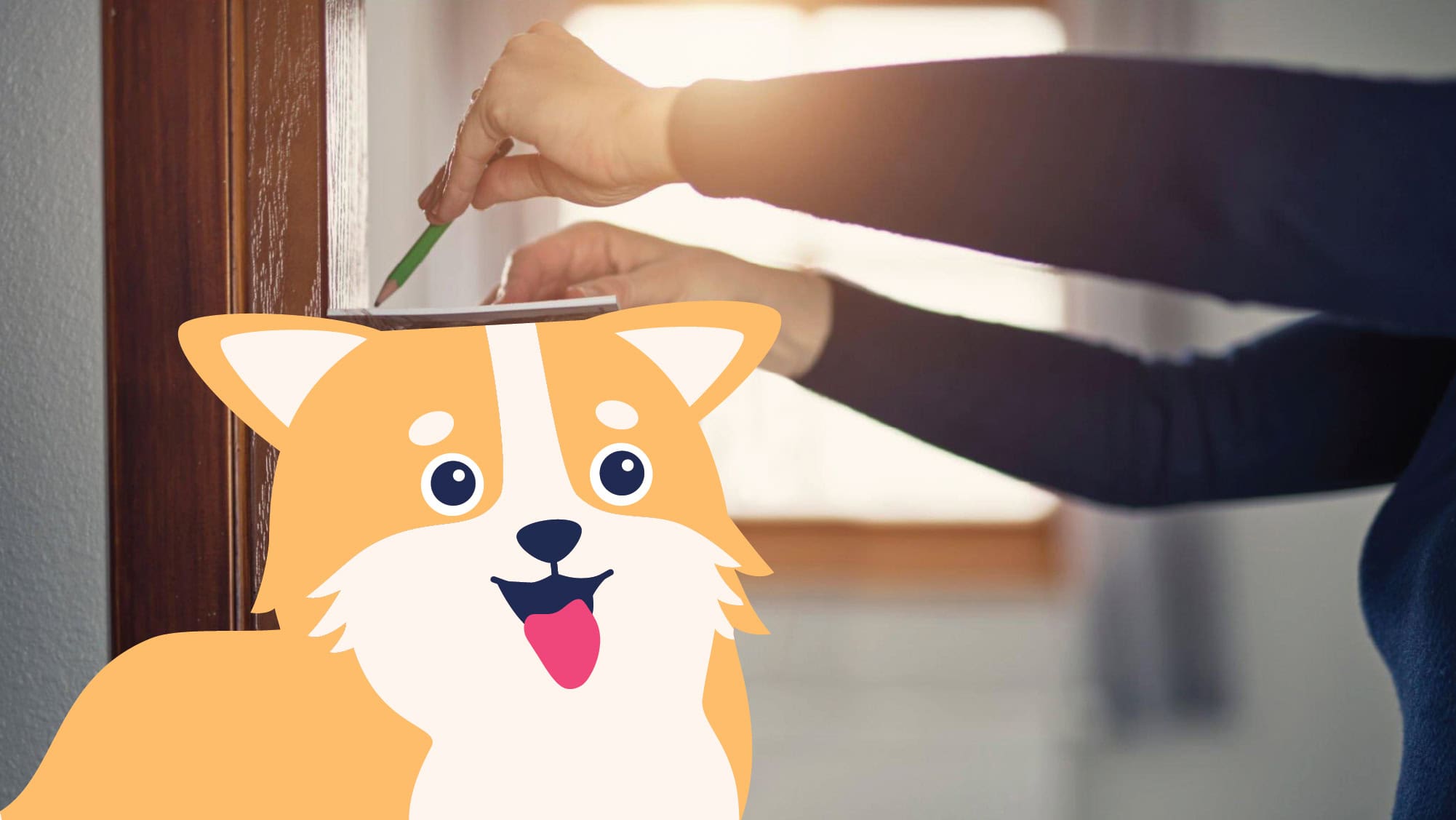As a pet parent, it can be both rewarding and challenging to watch your puppy grow. On the one hand, it’s thrilling to see them develop and thrive, learning new things along the way. On the other hand, raising a puppy comes with lots of demands as a pet parent.
Whether it’s your first go-around or you’ve raised puppies before, you may have some questions about what to expect as your puppy grows. Curious about how long it will take for your puppy to grow? Below, we’ll explore various factors to take into consideration about puppy growth and what you should expect during each stage.
When Do Puppies Stop Growing?
Puppies typically stop growing between 6 to 24 months, but it largely depends on the breed. Larger breeds take a bit longer to reach their full size because their bigger bones need more time to develop.
Puppy Growth Calculator
Our puppy growth calculator can help you estimate how much your puppy will weigh when they have reached adulthood.
Puppy Growth Stages
Each puppy’s growth stages will look slightly different. However, the following timeline can give you an idea of what to expect as your puppy develops in the first six months of its life:
- Week 2–3: Puppy begins to open its eyes and ears.
- Week 3: Puppy takes its first steps.
- Week 4: Puppy begins to engage in playtime.
- Week 5: Biting, running, lots of noise as their bark develops.
- Three months: Peak of the learning process.
- Four months: Puppy begins to look more like an adult dog.
- Five months: Lots of chewing!
- Six months: Full growth may be complete depending on the breed.
Factors Affecting Puppy Growth
A puppy that doesn’t grow according to normal growth charts may be experiencing a medical condition. One common reason puppy growth is stunted is due to intestinal worms, such as hookworms or roundworms. During your next puppy wellness exam, be sure to speak with your BetterVet veterinary doctor about preventative treatments for your puppy that protect against these common infections.
In addition to certain medical conditions, a few other factors can affect a puppy’s growth, such as poor nutrition, surgeries, or genetic conditions. If you have concerns about your puppy’s diet, talk to your BetterVet veterinary doctor about pet nutrition planning. Pet nutrition planning is a great idea to develop a customized nutritional plan and get help selecting the right dog food ingredients for your puppy.
Related reading: Kitten First Vet Visit: What You Can Expect
How to Feed a Growing Puppy
A well-rounded diet is essential for your puppy’s brain, muscles, and bones to develop properly. Growing puppies should be given food formulated just for puppies and not a standard adult dog food. This is because puppy food contains more calories, specific for the nutritional needs of a puppy.
During your BetterVet appointment, your BetterVet veterinary doctor will be happy to provide nutritional and food recommendations for your growing puppy. Nutritional advice can be given during mobile home visits and telemedicine visits.
How to Exercise a Growing Puppy Safely
In addition to nutrition, exercising your growing puppy is also important for its development. Exercise offers many benefits for your growing puppy, such as reducing the risk of obesity and chronic health conditions and increasing agility.
Not only is exercise beneficial for your puppy’s physical health, but it’s also an important component of its social and mental health. Exercise helps build confidence and trust and helps support healthy socialization with both people and other dogs.
Puppy Growth for Specific Breeds
Your puppy’s breed may impact how quickly it grows and develops. Larger breed puppies often do not reach their final size until they are between 12 and 18 months old. In contrast, smaller breed puppies tend to reach their final adult size much faster than larger breed puppies.
It is not uncommon for smaller breed puppies to be fully grown by six to eight months. Most medium-sized dog breeds will reach their adult size in one year.
Frequently Asked Questions
What is the hardest puppy age?
The hardest puppy age is often between eight months and two years. This period represents your dog’s “adolescent” age, requiring lots of attention, stimulation, and physical activity. New pet parents often find this stage difficult because puppies have many needs during this time.
How fast do puppies grow?
Dogs are generally considered adults when they’ve reached one year of age. However, this does not mean every dog breed is fully grown by 12 months. Large and giant breed dogs typically do not reach maturity until 18 months. During your dog’s puppy wellness exam, talk to your vet about specifics based on your dog’s breed.
When do puppies grow the most?
Puppies grow the quickest between three and five months of age. For puppies of small breeds, you may notice exceptionally rapid growth during this period. Although puppies will continue to grow after this, the rate may slow down.
Can you tell how big a puppy will get?
Using a puppy growing calculator is one way you can estimate how much your puppy will weigh as an adult. This calculator estimates your puppy’s adult weight by using its current weight and puppy age in weeks. To get an idea of the average size of a dog, you may wish to research its specific type of breed.
Help Support a Healthy, Growing Puppy with BetterVet
A properly formulated diet full of essential nutrients and calories is vital for a happy, healthy puppy! Book an appointment with BetterVet to discuss your dog’s unique nutritional needs to help your furry friend’s proper development.
A BetterVet veterinary doctor can help you with pet nutritional planning, where they’ll formulate a plan based on your pet’s preferences, age, appetite, weight, and other important factors. During your appointment, your BetterVet veterinary doctor can also help you make sure your puppy is up-to-date with all puppy vaccinations.





